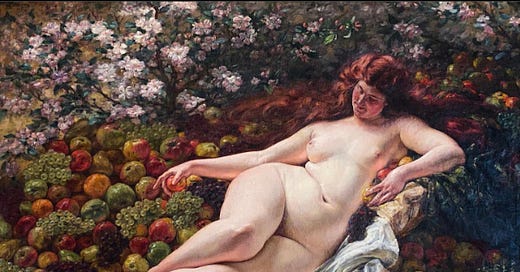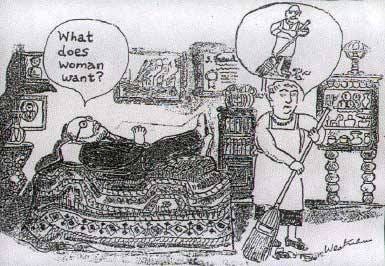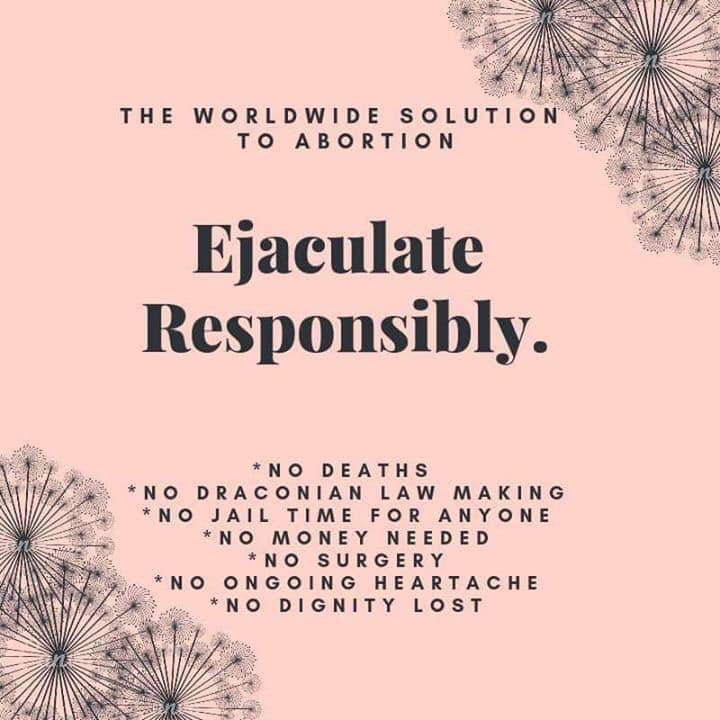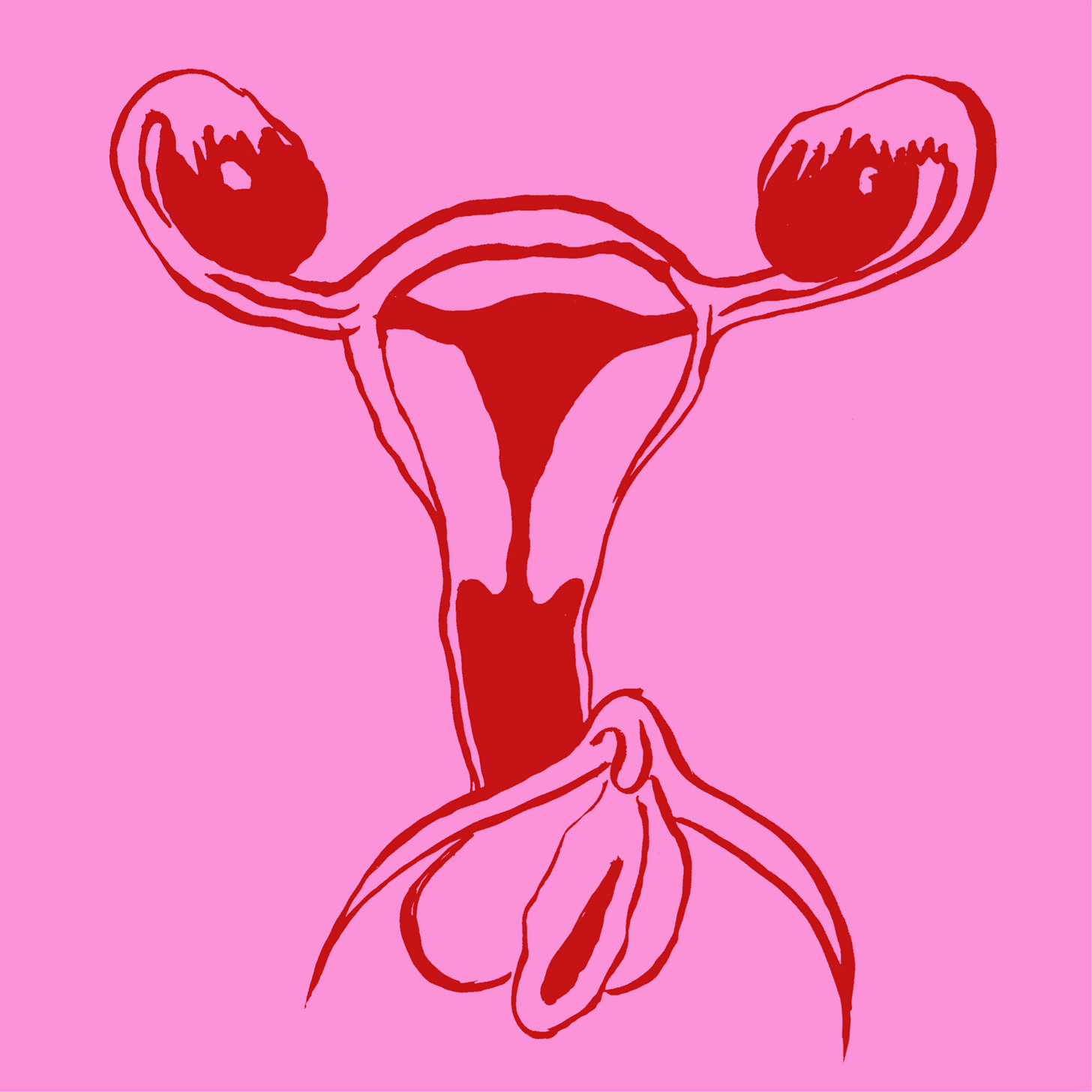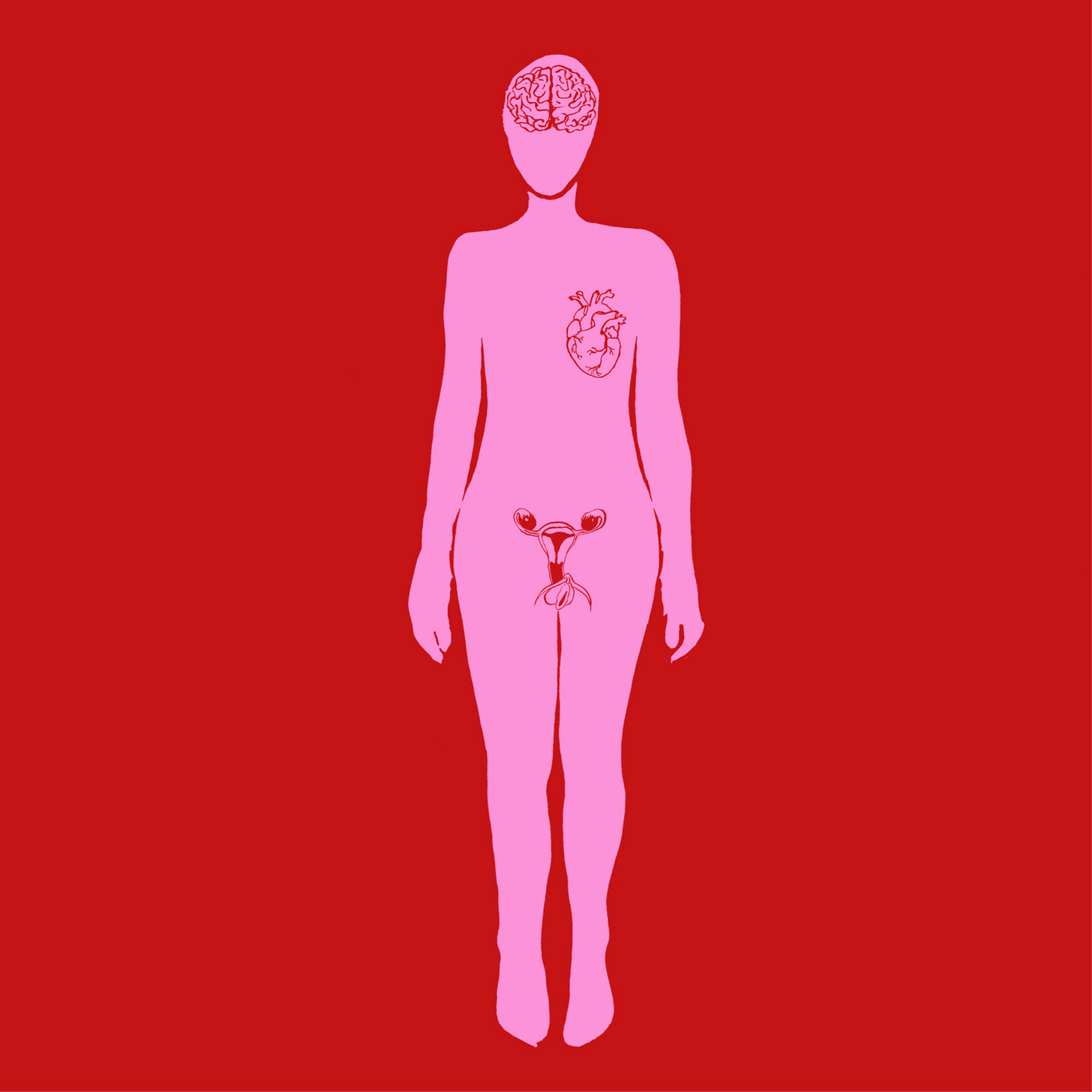“The great question that has never been answered, and which I have not yet been able to answer, despite my thirty years of research into the feminine soul, is 'What does a woman want?'"
Sigmund Freud's views on women stirred controversy during his lifetime and continue to spark debate today. The aforementioned sentence Freud once mused was described by female psychoanalysts and other feminist thinkers as distorted and condescending. Despite his inadequacies in understanding women, Freud's contributions marked a significant departure from the prevailing notions of his time. It was very unusual to acknowledge that women had sexual desire, much less to say that the repression of their sexual desire could make them hysterical.
Freud's controversial views on female psychology, criticized by figures like Karen Horney, gave rise to the concept of "womb envy" as a counterargument to his "penis envy." In defense, he indirectly maintained his stance in 1949, asserting the importance of recognizing the intensity of a woman analyst's desire for a penis. Despite challenging Victorian-era norms, Freud's ideas are frequently perceived as misogynistic. His granddaughter, Sophie Freud, regarded his theories as outdated, mirroring societal beliefs of his time. In 1933, Freud acknowledged an incomplete understanding of femininity, recommending individuals explore personal experiences, and poetry, or await more coherent scientific information.
Recently I came across another statement that seems to be still popular where a woman claimed that the most feminine experience is being pregnant and creating a baby. While I believe having babies is incredible, defining femininity solely by this biological act seems limiting.
Claiming that the most feminine act is having a baby inside oneself implies that the most masculine act is impregnating a woman.
This assertion oversimplifies the complexities of sex roles. While carrying a pregnancy might be a unique experience for women, acknowledging the essential role of sperm in creating a baby is equally important. Both aspects contribute to the intricate process of bringing new life into the world and should be solely appreciated.
Although creating life is remarkable, it's a biological function, and we're more than just "baby machines." Our ability to create extends beyond childbirth to various aspects of life.
We can find value in various aspects of life, not just in creating life. It may be a purpose for some but not for others. Women do not lose their femininity even after menopause when fertility wanes.
I am so grateful for this life experience of motherhood. I've seen women who do not. It's unfair that discussions about life creation, often spoken by conservative men, focus solely on women who are not even invited to the conversation. While only women can be pregnant, the topic involves both sexes. For conception and especially post-pregnancy, a child needs both parents. What's so complicated about acknowledging that?
Despite women holding equal rights officially, the lingering patriarchal biases persist. Our culture's deep-rooted history makes it challenging to erase these biases in a single feminist wave or through the legacy of the sexual revolution.
The default perspective still tends to be male. In the patriarchal system, sex is often associated with domination and taboo. Women's sexuality is subjected to a Madonna-whore dichotomy.
Where any socially accepted sexual choice for men, when made by women, faces scrutiny. This perspective can be traced back to the biblical notion of Eve, who is to be blamed for seducing Adam and casting punishment upon women for their sexuality. While I strongly disagree with Freud's misogynistic views and his misconception of vaginal orgasm as the only indicator of mature love, I appreciate the contributions of psychoanalysis and its later development being fundamental to understanding the human psyche. I also sense that the prevalence of sexual violence may stem from the forbidden fruit aspect, turning it into a perversion.
So, in my life experience, I was moderately exploring sexual experiences, and I feel the need to expand my empirical portfolio. Yet, another subject dear to my heart is the violence I experienced myself. I slowly started to understand these gender dynamics so that eventually, I could also find an explanation (not to be confused with justification) for why I got groomed into these codependent toxic cycles in family and romantic relationships more than once. I believe intelligence itself does not help prevent falling into those guilt-ridden situations, especially for females who dare not own their desires.
It took me more than 40 years to realize that being willing to give does not equal self-betrayal, and pouring from an empty cup is an impossible equation.
Yet I still observe those unhealthy programming and double standards unfortunately prevail. Different groups, such as the manosphere and “trad wives” are trying to preserve the old order. For a man having sex with a woman is a conquest and she is his trophy and territory. He certainly won’t respect her personhood as she becomes his property. While he surrenders to his “milk-giving” mother, he would have never imagined her to be sexual. It’s also difficult to imagine our grown-up kids being sexual or when they are growing up - explaining to them sex matters.
Yet some men tend to fetishize teenage girls, which is culturally justified however no such thing could be tolerated if it comes to a woman. Imagine a mature female fantasizing about an adolescent boy. Male-gaze-dominated visual culture normalizes the fetish of adolescent girls by objectifying and dehumanizing them. There is no counterbalance from the female perspective that may have helped to empathize with females and get accustomed to their sexual needs. It is vastly unrepresented in what women want, and what they like to look at. That fact is that we women have our sexual fantasies, things that turn us on when look at and they are still shamed for having them!
That argument that women are not as visual as men is simply not true and I was writing about it previously here.

Addressing these issues requires an imperative to destigmatize and acknowledge women's sexual needs and fantasies, along with recognizing the validity of objective differences in their sensuality within both cultural and scientific discourses.
I emphasize the pressing need for a balanced representation in visual culture from the female perspective. Women continue to bear unjust blame for various issues, and the societal expectations placed upon them remain insatiable. They are consistently denied the right to sexual agency, ownership over their bodies, and the autonomy to make decisions without facing subsequent judgment.
This rhetoric is notably perpetuated by conservatives who resist acknowledging a woman's right to choose abortion. While alternatives exist for preventing unwanted pregnancies, they are not foolproof, and the burden of responsibility often falls disproportionately on women, not on sperm donors but on those who own the womb.
This disparity is glaring when considering that sperm is necessary for fertilization, and penetration, usually in the context of male pleasure, is integral to the process (as indicated by the orgasm gap data).
In casual situations, the likelihood of reciprocal pleasure diminishes, as women may still hesitate to express their desires freely because of the stigma on their desires ( it is considered not sexy as she should remain submissive). The prevailing language further reinforces the notion that her vagina is merely a vessel for his pleasure, emphasizing a societal bias that warrants critical examination and reform.
The vagina is surely the most popular “part” of the female “parts” — the only one we ever really recognize. And yet, it’s Latin for…a “sword sheath”? Well, what a wonderful metaphor it is for the female genital canal.
The subtle reinforcement of sexism in language perpetuates objectification unconsciously.
A crucial first step is heightening awareness, starting with an examination of the term "vagina," historically associated with a "sheath" for a sword. The Latin origin, linking it to penises, reflects deeply ingrained misogyny persisting in our social consciousness. Unpacking objectifying implications reveals parallels, with both a sword-sheath and a vagina perceived as unfeeling objects, existing for external use, lacking the need for consent, seen as possessions, and subject to penetration at the will of another. Unfortunately, this linguistic bias extends to the damaging and dominating use of penises, contributing to broader societal issues.
The objectifying implications are still evident in 21st-century attitudes and actions. Instances of using penises violently and or even perceiving the female body solely for male pleasure are unfortunately prevalent.
This underlying attitude contributes to centuries of rape and sexual violence, perpetuates oppressive sexual norms, and denies female-bodied individuals their autonomy, personhood, and intelligence.
“It is true that Americans do not excise the clitoris and ablate the labia, as is practiced in other cultures on countless girls and women. Instead, we do the job linguistically — psychic genital mutilation, if you will. Language can be as powerful and swift as the surgeon’s knife. What is not named does not exist.”– Dr. Harriet Lerner (clinical psychologist, researcher, author) as published in the Chicago Tribune
The accurate term for the external female genitalia is the vulva, which includes various components crucial to female pleasure, such as the clitoris.
Contrary to the misconception that most people with penises can orgasm from intercourse alone, roughly 75% of people with vaginas require vulva stimulation for orgasm. The linguistic, psychological, sexual, and societal oversight of the vulva's existence perpetuates a reduction of female genitalia to just the vagina. This reduction prioritizes heterosexual male pleasure, neglecting and erasing female pleasure. Beyond appearing innocuous, this misnomer contributes to significant issues like the orgasm gap, oppressive sexual dynamics, sexual violence, and the pervasive shame, confusion, and stigma surrounding female sexuality.
I love men! I can anticipate the gaslighting argument that I lack common sense, expecting men not to prioritize their pleasure inside a woman. Why is it not obvious that her sexual needs should be considered as well? Why is she expected to be accountable for his satisfaction when it is used for his pleasure? If they don't plan on having babies, why isn't his contribution taken into account? And what about his responsibilities as a father after conception? The issue of being abandoned by a man still exists—or it is still acceptable to be abandoned; look at the heartbreaking stories of single moms.
Why do people claim there was a sexual revolution, yet all these issues remain standard?
Even the invention of the pill was specifically for women, imposing a heavy chemical burden on them that they bear 24/7, often just for the fleeting moments of his pleasure. While I'm not advocating for the abolishment of the pill, as many women appreciate its benefits, I do wish there were more alternatives for men beyond condoms, alleviating women from the constant stress of con(tra)ception. The argument that this pressure falls on women solely due to the biological cost of pregnancy doesn't acknowledge the societal expectations and scrutiny placed on women, especially single mothers.
Perhaps, if there were more accountability for men who abandon their unwanted children, the dynamics surrounding contraception and reproductive responsibilities would undergo a much-needed transformation.
What sets us apart is not the hookup culture, which has seen a drastic decline with casual sex hitting its lowest recorded numbers. The pandemic only contributed to the extensive consumption of screen pleasures.
The decrease in real sexual encounters among young people is linked to concerns about the extreme nature of mainstream porn, influenced by market neoliberalism, portraying distorted and perverse behaviors.
Another issue is the persistent male entitlement to sex, contributing to the emergence of incels and remaining prevalent in many heterosexual relationships. Men often express dissatisfaction with the quantity of sex without considering its quality, centered on their pleasure only. Additionally, women's exhaustion from fulfilling various roles—lovers, housewives, secretaries, counselors, and more—can impact their libido.
The dominant narrative often focuses on men's complaints about insufficient sex, but there is a lesser-known counter-complaint from women facing similar issues.
Kehrer’s Syndrome, a condition often metaphorically referred to as 'widow's disease,' encompasses five symptoms related to sexual disturbance in women.
It emerges from disruptions in sexual intercourse, characterized by a lack of sexual satisfaction in women with a normal libido and no prior sexual disorders. Contributing factors include differences in sexual temperament between partners, frequent partner absence, sexual intercourse not leading to orgasm, conflicts in the partner relationship, and sexual disorders in the partner limiting or preventing proper sexual intercourse. The syndrome is rooted in a woman's sense of rejection by a specific partner and her emotional bond. What exacerbates the situation is the general tabooization of sex and the absence of a “love tongue”—the ability to openly and shamelessly communicate about it without resorting to vulgar expressions.
In the realm of dating, I believe a woman should refrain from allowing a man to penetrate her unless he ensures that her pleasure matters to him and takes priority before penetration. This principle holds for both casual encounters and potential long-term relationships.
Unless she is confident that he is a good sexual match capable of providing satisfaction, prioritizing her pleasure, and consistently ensuring her climax before penetration, their future reproductive and penetrative experiences may lack satisfaction.
This reflection emerged from a triggering Twitter conversation I had a couple of days ago, on a topic that resonates deeply with me. Before delving into that more specifically, I want to share the most recent observation. Last Monday, I watched "Poor Things", a film that explores a theme similar to what we're discussing—the ownership of women by men. Watching it with the innocence of a child, I found myself deeply moved, crying like a baby. The tears I shed were not just for myself but for the generations of women who endured sexual double standards— our mothers labeled as sluts.
The sadness and anger I felt were not only because the film resonated with undeniable truths but also because I've noticed a discrepancy in how such content is perceived based on the gender of its creator. Works with similar content created by men often receive more serious consideration than those by female artists. Female creators are frequently gaslit, labeled as crazy, or accused of success solely due to privilege rather than talent. It infuriates me. While I agree that Barbie was just a marketing ploy, the larger issue persists. Despite the presence of exceptional female artists, we still face challenges in receiving equal credibility, recognition, and validation. Internalized misogyny prevails. My frustration boils down to a simple message: "F*** off! Our fight has just begun!"
So before I will present you the main dish for today’s post, I would like to bring you the Twitter shitstorm that I was having for a couple of days that I could not resist not reacting to. I am fully aware that Twitter and any social media are not reality but, man, my urge to respond signifies how dear the subject is to me.
The discourse on abortion rights pervades contemporary societies, resurfacing persistently despite our aspirations for a settled understanding that recognizes women as individuals endowed with conscience and ownership over their bodies.
Jennifer: Men impregnate women! It seems so obvious and yet that has been forgotten in abortion discussions. They say women “get” pregnant. No, a man impregnated her. He took action. He impregnated a woman who didn’t want to be impregnated. Use that language. It matters.
Stephen: If she didn't want to be impregnated, then why is she
a) not using precautions and
b) engaging in activity that only causes pregnancy?
Jennifer: You mean why is she not taking responsibility for his irresponsibility?
Matt (with Freud’s face as his avatar): His sperm, your egg! Why should the guy in this scenario be held responsible for HER irresponsibility for not being on birth control?
Mature ADULTS discuss contraception BEFORE sex. God, you think like a child.
Joanna Szproch: why does the pill have to be on her? why not create a pill for him? why does she need to be on the chemical substance 24/7 just for a few seconds of his pleasure?
She can come with no penetration why can't he come outside? or at least use a condom?
Stephen: Well, ultimately only women can get pregnant. While I have no problem with male birth control, it is still up to the women to open their legs to receive a man.
Abstinence is 100 percent effective at preventing pregnancy.
Joanna Szproch: I agree she should not let him in unless she is sure he is good at making her come first and with no penetration consistently so their future reproductive sex will be as satisfying.
Jennifer: So many Puritans here. How many times should a woman have sex in her life? 0, 1, or 2? That’s the average number of babies. So after that? Nothing.
Once you’ve had the kids, no more sex in a marriage?
Joanna Szproch: In the discussion about the fall in the birth rate, no one points out that making children takes two to tango. While women are expected to be accountable for humanity's survival, they are refused the right to conscience by not letting her choose.
So where should be a conclusion, who hates whom? I feel like conservatives in general are just full of misogyny, It is an observable fact, not an assumption. Don't ya think? And you cannot at the same time expect the woman to be accountable and take her right to her conscience away. She is the one who will live with her decision till the end of her life no one else!
Matt: Can you read? I'm not saying the pill "has to be on her." ADULTS discuss and find a compromise. Also, there are nonprescription OTC types of birth control women can take. Christ, you "feminists" will do and say ANYTHING to avoid accountability.
Joanna Szproch: Show your face, Matt! I am sure UR an expert in guessing what a woman wants. Do you have any parent experience to speak about what is viable between adults? Most of the time this kind of compromise doesn't work or happen. I'm a mom of a 21yo daughter, divorced when she was 6.
Matt: I'm 56 years old, married 20 years, and I have a 16-year-old daughter who is in Running Start and has a 4.0 GPA. It would help if you grew up and quit acting like a helpless child. Men shouldn't have to guess what a woman "wants." We're not mind readers. If you don't communicate, it's on you.
Joanna Szproch: Since you're hiding behind Freud's face - I hoped you'd recognize his famous quote - who particularly specialized in guessing a woman's desires. Shame on you for lecturing me because you think that if you have been more fortunate, you can give me lessons about growing up.
Most dads don't share parenting duties symmetrically. It was our adult decision to split but he moved to another city and until now it's all on me. 15 years of raising my daughter alone and you dare to tell me that I don't know what accountability is?
Women don't require penetration for orgasm, so why engage in an activity that doesn't benefit them, risking unwanted pregnancy? {…}
I'm talking about statistics, which means that for the most part, only women take responsibility for raising children resulting from intercourse followed by conception. He is accountable for his coming. She doesn't need PIV (penis in vagina) to come.
Why is she expected to be accountable for an activity that serves merely his pleasure? Why does she need to risk it at all? why there is no equality in pleasure expectations but she is expected to be accountable for his coming inside her?
They are saying it needs 2 to tango, but still, penetrative sex is basically for only his pleasure taking advantage of her vagina which for a 90% chance she won't come while she's risking unwanted pregnancy and expecting her to be accountable for it, why it's not on him?
Matt: ONLY for HIS pleasure? That's complete BS! link to a tabloid article
Joanna Szproch: this magazine is not a legit source, please learn about the orgasm gap and why it happens.
Matt: another link to another article
Joanna Szproch: Let's rely on scientific evidence, not magazine articles, for our discussion. The G-spot is the internal part of the clitoral body, still omitted from most medical textbooks.
Jessica Pinn: Not true. The internal part of the clitoral body hasn’t ever been omitted from most medical textbooks. In fact, it is less often censored than the external part.
Joanna Szproch: The orgasm gap, particularly prominent in heterosexual casual sex, emphasizes the rarity of a woman's orgasm without external clitoral stimulation, which depends on individual anatomy.
Most women don't require penetration for orgasm, this is a fact, and mostly from penetration alone, they don't orgasm. I suggest exploring credible sources, starting with a study of female sexuality and anatomy from their perspective, not solely from the viewpoint of the penis.
Here are some recommendations: @jess_ann_pin and @drlauriemintz.
Female desire and pleasure are not mysteries; they are subjects that can be researched to comprehend how they function for more satisfying, undoubtedly relational, sexual encounters. Yet the understanding of them is still in its early stages and not extensively studied.
Without recognition, improvement is impossible. There is still no equality when it comes to fulfilling her needs; women are not given the right to bodily agency. Meanwhile, expectations of responsibility for ejaculation are placed on them.
Dianne: You men will do and say anything to avoid wearing a condom, the only protection against both pregnancy and STIs, which are at epidemic levels across the country, btw.
Ah, Stephen, I do not have enough characters available here to explain how sex occurs. The promises of love, the drinks poured, the aggressive actions men think are mutual when they’re aroused, the feelings of female helplessness in the face of all that. Listen to women.
I would like to engage in a meaningful dialogue where we can negotiate our responsibilities. However, there must first be a willingness to change, especially for those in privileged positions, primarily males. They need to open up to the female perspective and start listening. Instead of burdening them with more responsibility and expectations. This situation mirrors the story of Eve tempting Adam to eat the apple. Although he could have rejected the apple, Eve is unfairly blamed for all the curses of our human life's misery. While I agree that responsibility is an adult thing, before blaming others, we should all be obligated to critically assess our role in the situation by following our conscience.
As the saying goes, “He who is without sin among you, let him throw a stone at her first.”

Laia Abril, my favorite artist and a significant source of photographic inspiration, is set to open another chapter of her project on misogyny - "On Rape" - this Friday in C/O Berlin. As I navigate the burden of traumatic experiences ingrained in me from the moment of my first breath as a female, I would like to complement Abril’s exploration of history by delving into ways of growing our resilience. This journey involves freeing ourselves from guilt to discover and embrace more joy, fun, and pleasure. In a post-patriarchal, post-modern reality, and post-pseudo-sexual revolution, which revealed little beyond a pill for those not responsible for ejaculation, it becomes crucial to reclaim our sexual agency that has long been overlooked.
Post-patriarchal legal equality hasn't fully alleviated women's discrimination.
Societal expectations force women to prioritize others' needs, penalize career decisions, and hold them accountable for declining birth rates. Women's health is neglected, and subordinate gender dynamics persist. Men's contraceptive options receive little attention, and misunderstandings about female sexuality endure due to a visually male-dominated language.
My childhood experiences as a girl suggest that the lack of space for play in my upbringing may explain my longing for joy.
I had never learned how to allow myself to be playful. Societal expectations make it challenging for women to have fun experiences, leading to feelings of guilt. Restrictions on sexual self-determination strict beauty standards and diet culture impact women's pleasure, often resulting in alienation from bodies and intuitions leading to burnout and compensating overconsumption.
To address these challenges, I am initiating a project with women that promotes positive change. The goal is to achieve a universality of female perspective in a broader representation of women's desires in visual culture. To do this, we need to discover what we truly want.
What I actually want!
Together with female participants, I will create a supportive environment to explore our playful side. In our meetings, we will share HER -stories, -preferences, and -fantasies, promoting courage and individual expression. Through various activities, we will communicate sensual preferences and explore unconventional ideas to challenge stereotypes about femininity and acknowledge the true power of women.
The project aims to promote self-determination and the reassessment of women's needs to experience joy and pleasure without guilt, strengthening resilience. Together, we will express our desires through stories and visual representations, speculating on how our newly created (visual) culture could look, where our needs are considered without shame.
Through visual compositions and manifestos, we will change perceptions and redefine femininity on our terms, gaining courage and not compromising our individual needs.
The next step will be the creation of a PLAYGIRL calendar representing various fantasies and encouraging self-subjectification. The goal is to create a positive dialogue that inspires a broader shift in recognizing and respecting the diversity and complexity of women's desires and strengths. We aim to transform our energy into positive changes, prioritizing self-discovery and effective communication.


